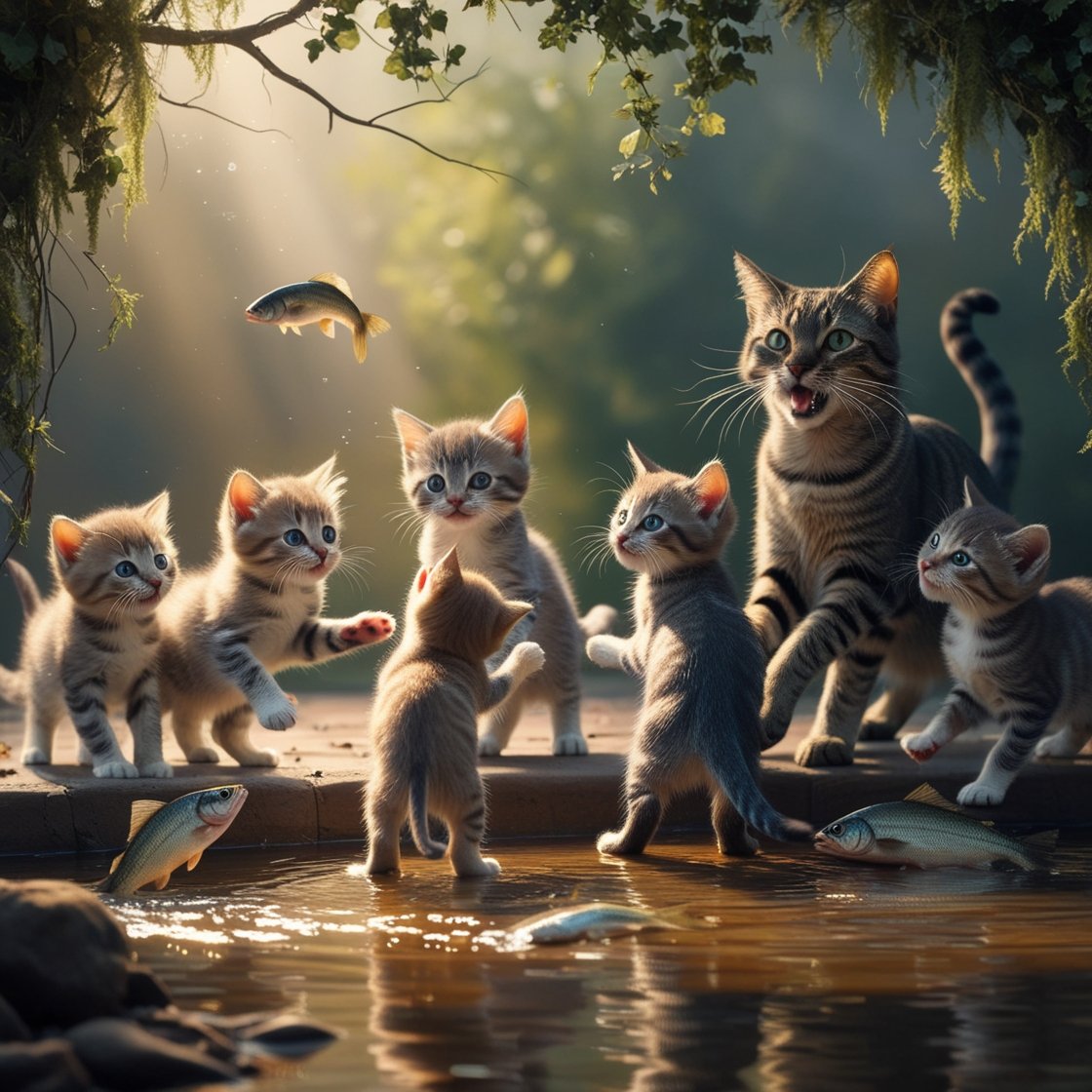Cats have long captivated humans with their grace, agility, and innate hunting prowess. Among their most fascinating behaviors is the ability to catch fish—a skill that showcases their patience, precision, and adaptability. Observing a kitten’s playful attempts evolve into an adult cat’s expert hunts offers insight into their developmental journey and the refinement of their natural instincts.
The Innate Hunting Instincts of Cats
From the moment they are born, kittens exhibit behaviors that hint at their predatory nature. While their early days are filled with playful pounces and mock hunts, these activities are more than mere entertainment; they are vital for honing the skills necessary for survival. As kittens mature, their coordination and reflexes sharpen, enabling them to execute more calculated and effective hunting maneuvers.
The Fascination with Water and Fish
Although domestic cats are often perceived as creatures that disdain water, many display a curious fascination with it, especially when it involves fish. This intrigue can be attributed to:
Visual Stimuli: The shimmering movement of fish in water can captivate a cat’s attention, triggering their chase instinct.
Auditory Cues: The subtle sounds of water and fish can allure cats, drawing them closer to investigate.
Tactile Exploration: Some cats enjoy the sensation of water, leading them to play with it and, consequently, attempt to catch fish.
Learning to Catch Fish: A Developmental Progression
Observation: Kittens begin by watching fish intently, their eyes tracking the swift movements, and may attempt tentative paw swipes.
Imitation: With time, they mimic the hunting techniques displayed by their mother or other adult cats, refining their approach.
Practice: Through repeated attempts, kittens enhance their timing and precision, transitioning from playful jabs to purposeful strikes.
Mastery: As adult cats, they exhibit remarkable patience and skill, often waiting motionless for the perfect moment to pounce, ensuring a successful catch.
Factors Influencing Hunting Behavior
Environment: Cats raised in environments where fish are present, such as near ponds or aquariums, have more opportunities to develop and practice fishing skills.
Breed Characteristics: Certain breeds, like the Abyssinian, are noted for their exceptional hunting abilities, which can influence their proficiency in catching fish.
Individual Temperament: A cat’s unique personality and experiences play a significant role in their enthusiasm and success in fishing endeavors.
Safety Considerations for Domestic Cats
While it’s enthralling to watch cats engage in fishing, it’s essential to ensure their safety:
Supervision: Always monitor your cat around water to prevent accidents, especially if they are young or inexperienced swimmers.
Clean Water Sources: Ensure that any water your cat interacts with is clean and free from harmful substances or sharp objects.
Respect for Wildlife: If your cat is outdoors, be mindful of local wildlife and the ecological impact of their hunting activities.
Conclusion: A Testament to Feline Agility and Curiosity
The progression from a kitten’s playful splashes to an adult cat’s adept fish-catching is a remarkable journey that underscores the development of their inherent hunting skills. This behavior not only highlights their physical capabilities but also their cognitive growth and adaptability. Whether in the wild or the comfort of our homes, observing a cat’s fishing exploits offers a window into the intricate world of feline behavior, where instinct meets learned experience in the most captivating manner.


